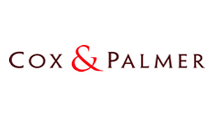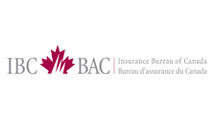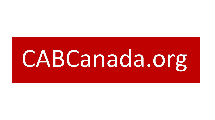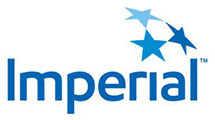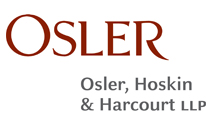Fairness and Formality – Mediation Advocacy and the Self-Represented Disputant
 by Martha Simmons, PhD
by Martha Simmons, PhD
In today’s legal profession, there has been an upswing in the use of consensual dispute resolution processes, like mediation. Coinciding with the increase in the use of mediation, is the increase of self-represented litigants (SRLs) directing themselves through legal processes. More recently, SRLS have begun to avail themselves of unbundled legal services. This trend brings into question the equality and ethics of the mediation process where one party is represented by a lawyer and the other is a SRL. Given this new reality, lawyers must remain cognizant of inequities and re-evaluate how they engage with opposing parties, particularly, non-lawyers.
One of the most fundamental changes to the legal profession in recent times is the rise of the use of consensual dispute resolution processes, such as mediation. Another, more recent, change has been the swell in the number of self-represented litigants (SRLs) navigating legal processes. Despite these twin trends, very little has been written about the overlap between the participation of SRLs in mediation, particularly in the context of mediation advocacy. Lawyers must learn to work with SRLs in participatory consensual processes, a role which raises many interesting practical and ethical issues. In addition, the advent of unbundled legal services presents new considerations for mediation advocates and clients alike. This article will delve into some of these issues.
Mediation has the potential to be more accessible to non-lawyers because of the process’ inherent flexibility and its less rigid adherence to strict protocols and jargon. After all, mediation was used long before it became part of a legal process. Many community mediation programs still exist and do not involve lawyers in any aspect of the process. Mediation is about people and about communication. The law has made its way into mediation and, hence, the process now often involves lawyers.
Either in a case where both parties are represented or both parties lack representation, the parallel nature of the mediation creates some sense of fairness and equality. Admittedly, this fairness and equality may merely be optics, but a lack of parity magnifies the concern around a self-represented party being taken advantage of and raises the apprehension about whose role it is to ensure that both sides understand the process and outcome. Asymmetrical representation increases the likelihood of power and knowledge imbalances and shifts the onus to both mediator and opposing counsel to ensure fairness. The changing roles in mediation with unequal representation have sparked considerable debate about the nature of the lawyer’s role in the mediation and the mediator’s obligation vis a vis the self-represented person. New rules of professional conduct and the corresponding new ethical duties provide some guidance to mediation advocates and require consideration.
Asymmetrical representation is increasingly common. To address this phenomenon, the Law Society of Ontario’s Rules of Professional Conduct have been amended to include the following provision.
Rule 7.2-9 – When a lawyer deals on a client’s behalf with an unrepresented person, the lawyer shall: . . .
(b) take care to see that the unrepresented person is not proceeding under the impression that their interests will be protected by the lawyer;
(c) take care to see that the unrepresented person understands that the lawyer is acting exclusively in the interests of the client and accordingly their comments may be partisan.
Lawyers must, hence, communicate effectively with opposing parties to clarify the rules and relationships of all involved in the mediation. Self-represented parties require more disclosure than represented parties because they lack the professional resource to discover, understand and defend their legal rights. Counsel can, and must, help SRLs in mediation in ways that do not harm their own clients and indeed can help to accomplish one’s own client’s goals. Using plain language, for example, can help to create a more collaborative atmosphere, as SRLs can otherwise be alienated by the use of professional legal jargon and can be left feeling taken advantage of or bullied by opposing counsel. If they are unable to participate meaningfully in the conversation because of a lack of understanding, the participatory nature of mediation falls apart. A lawyer must always represent the best interests of their client, however in the context of mediation it is in those best interests that a collaborative and participatory process be taken.
Along with the use of plain language, opposing counsel can help support the preparation of SRLs. In mediation, the more prepared both sides are, the more likely there is to be a settlement. Additionally, the more preparation the client has, the more likely they are to find the outcome fair and the more likely they are to comply with its terms.[1] This means that for the lawyer representing a party opposing a SRL, it is important from both an ethical and strategic standpoint to aid the other party to be prepared and informed. The Advocate’s Society provide helpful advice in their Best Practices stating, “counsel should try to communicate with and be fair with self-represented litigants…If assisting a self-represented litigant does not prejudice counsel’s client, will move the case forward and will not result in significant costs, counsel should strongly suggest providing assistance”.[2] This role represents a shift in lawyering behavior that is not comfortable for some. Yet, the cultural shift is one that advocates must recognize and heed.
In addition to the rise in asymmetrical representation, another trend in relation to SRLs is the use of unbundled legal services. Precisely to deal with the information gap discussed above, disputants are increasingly seeking to narrow that gap by paying for one or several discrete lawyering tasks. These tasks help disputants in the preparation for and participation in legal processes without having full representation. Although full representation may not be financially possible, many litigants feel that some legal assistance would be better than none. Unbundling presents a meaningful opportunity for SRLs to access legal services in a capacity that is right for their situation, whether it be for representation in one part of a matter, or guidance and coaching as they represent themselves.
One-sided use of unbundled services in a mediation where one party is fully represented and the other is not can mitigate some of the risks and power inequities in these situations. In any scenario dealing with unbundled services, it is critical that the establishment of the lawyer-client relationship be well defined from the outset. The lawyer and the client must work together to select the appropriate services from a menu, while settling clear boundaries on what is not in scope. Combining a few different services together to address critical areas where the lawyer can add value to the client in mediation will increase their utility exponentially. This tailored approach allows the client to retain significant control in a more affordable manner.
While the use of unbundled services may help overcome some of the risks associated to a lawyer dealing with a non-lawyer in mediation, it is important to remain cognizant that inequities still exist. Mediation’s proliferation in resolving disputes means that there must be a re-evaluation of how lawyers engage with opposing parties, particularly when dealing with non-lawyers. The juxtaposition of delivering the best outcome to a client while working together with the other party is one that lawyers will need to be able to effectively navigate for successful mediation in years to come.
[1] Roselle Wissler, “Representation in Mediation: What We Know from Empirical Research” (2010) 37 Fordham Urb LJ 433.
[2] The Advocate’s Society: Institute for Civility and Professionalism, Best Practices. Online: http://www.advocates.ca/Upload/Files/PDF/Advocacy/BestPracticesPublications/Best_Practices_Guide_to_Civility_English.pdf.
Dr.Martha Simmons is the Academic Director of the Winkler Institute, and as such serves as the Winkler Professor in Dispute Resolution. Professor Simmons, who has JD, LLM and PhD degrees from Osgoode, teaches in both the JD and Graduate Programs. Her primary areas of research and teaching are dispute resolution, legal education, innovation and access to justice.





